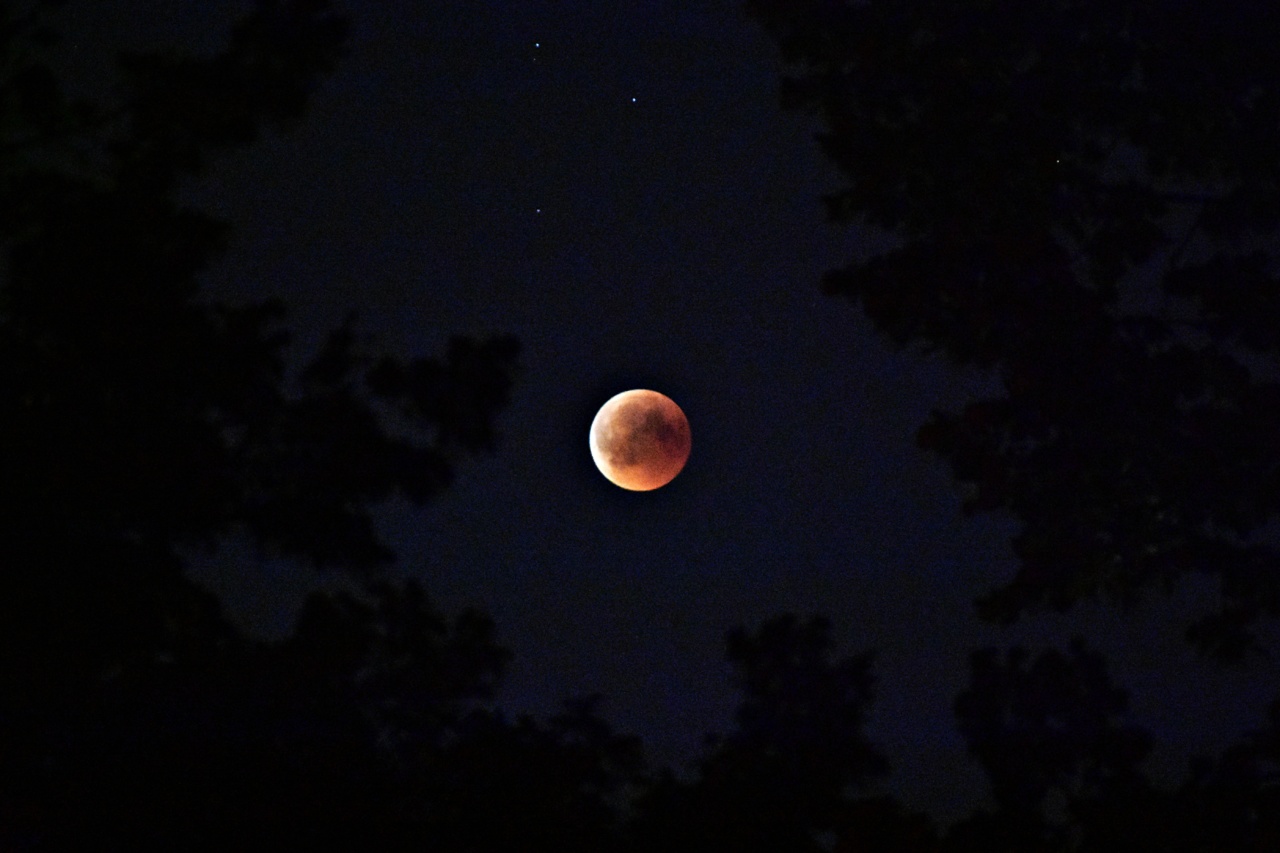Full moon insomnia refers to difficulty falling asleep or staying asleep during the nights surrounding a full moon. Many people report experiencing sleep disturbances or insomnia during this lunar phase.
The Connection Between the Full Moon and Insomnia
While it is still not fully understood why the full moon affects our sleep patterns, there are several theories that attempt to explain this phenomenon. One popular theory is the effect of moonlight on melatonin levels.
The Role of Melatonin
Melatonin is a hormone that helps regulate sleep-wake cycles. It is naturally produced by the body in response to darkness, signaling the brain that it’s time to sleep.
Exposure to bright light, such as moonlight during the full moon, can disrupt the production and release of melatonin, leading to difficulty falling asleep.
Increased Brain Activity
Another theory suggests that the increased ambient light during a full moon stimulates brain activity, making it harder to quiet the mind and fall asleep.
This heightened brain activity may also contribute to vivid dreams or nightmares reported by some individuals during this lunar phase.
Circadian Rhythm Disruption
Our circadian rhythm is our internal biological clock that regulates various physiological processes, including our sleep-wake cycle. The full moon’s impact on our circadian rhythm may disrupt our natural sleep patterns, leading to insomnia.
10 Tips to Combat Full Moon Insomnia
If you find yourself struggling with insomnia during the nights surrounding a full moon, here are some tips to help you combat it:.
1. Create a Relaxing Bedtime Routine
Establish a relaxing bedtime routine to signal your body that it’s time to wind down. This may include activities such as taking a warm bath, reading a book, or practicing relaxation techniques like deep breathing or meditation.
2. Make Your Bedroom a Sleep-friendly Environment
Create a sleep-friendly environment by ensuring your bedroom is cool, dark, and quiet. Use blackout curtains or an eye mask to block out any additional light, and consider using earplugs or a white noise machine to mask any noisy distractions.
3. Limit Exposure to Electronic Devices
Avoid using electronic devices, such as smartphones, tablets, or laptops, before bedtime. The blue light emitted by these devices can suppress melatonin production and interfere with your ability to fall asleep.
4. Avoid Stimulants
Avoid consuming stimulants, such as caffeine or nicotine, in the evening or close to bedtime. These substances can make it harder for you to relax and fall asleep.
5. Establish a Consistent Sleep Schedule
Try to go to bed and wake up at the same time every day, even on weekends. This helps regulate your body’s internal clock and promotes better sleep. Consistency is key for a healthy sleep routine.
6. Engage in Regular Physical Activity
Exercise regularly, but aim to finish your workout at least a few hours before you plan on going to bed.
Physical activity can help tire your body and promote better sleep, but exercising too close to bedtime can increase alertness and make it harder to fall asleep.
7. Limit Napping
If you are having difficulty sleeping at night, try to limit daytime napping or avoid it altogether. Napping can interfere with your body’s natural sleep-wake cycle and make it harder to fall asleep at night.
8. Practice Stress Management Techniques
High levels of stress and anxiety can contribute to insomnia. Incorporate stress management techniques into your daily routine, such as journaling, practicing mindfulness, or engaging in hobbies that help you relax.
9. Try Relaxation Exercises
Before bedtime, try different relaxation exercises to calm your mind and body. These may include progressive muscle relaxation, guided imagery, or listening to soft and soothing music.
10. Consult a Healthcare Professional
If your insomnia persists despite trying these self-help strategies, it’s important to consult a healthcare professional.
They can assess your sleep patterns, identify any underlying causes or conditions, and recommend appropriate treatment options.
Final Thoughts
While the exact reasons behind full moon insomnia remain elusive, the effects are experienced by many individuals.
By understanding the potential triggers and implementing healthy sleep habits, you can overcome the disruptions caused by full moon insomnia and achieve restful nights.






























